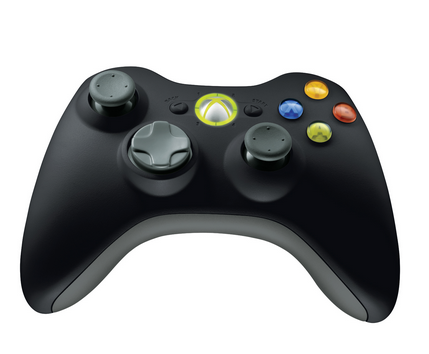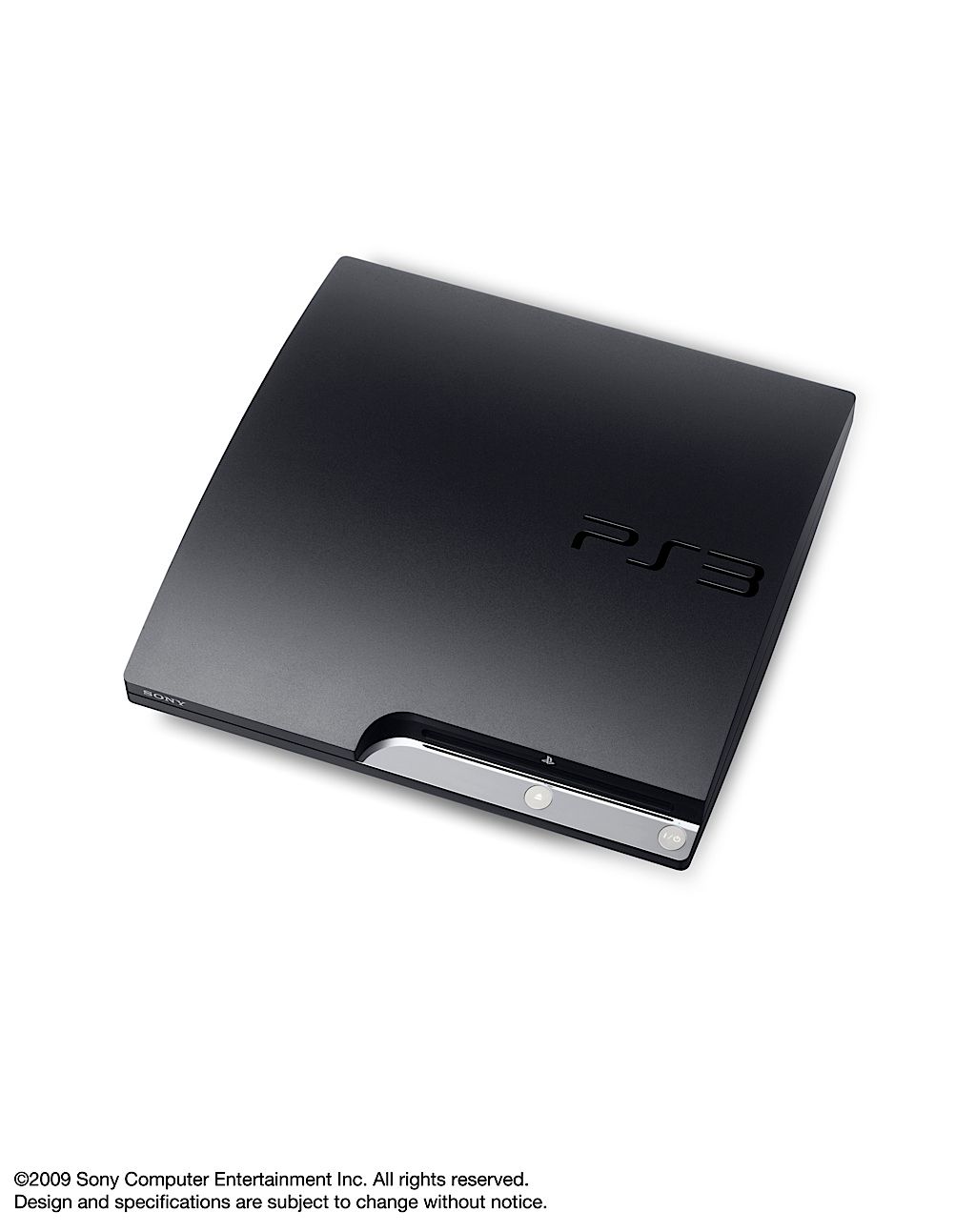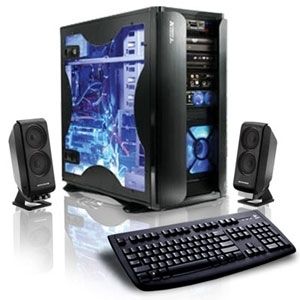PC gaming, at one point in time, pioneered the industry in just about every genre known to the world of gaming. Its threshold was once untouched as its graphical dominance trampled the very grounds that was once entrenched by its graphically inferior console competitors from corporate conglomerates like Nintendo. Games matured graphically almost every year in both visuals and game play as the console market stagnantly etched behind. Once broadband came along, the PC industry, once again, leaped ahead of the console market when it was introduced to Massively Multiplayer Online gaming (MMO).
For years, PC has dominated the gaming platform as the most appealing choice for gamers searching for the best visual experience. Games like Crysis, which awed gamers everywhere when its graphical capabilities proved to be ecstasy for the eyes. Aside from the appealing façade that games like Crysis were able to conjure, the one thing that separated PCs from consoles as years passed was how PCs were able to interconnect thousands of users simultaneously in the same world through games such as EverQuest and World of Warcraft. However, it has now come to a point where consoles themselves have harnessed the ability to connect players around the world just as the PC has been doing for years. As the install base for consoles grows, developers are looking for newer ways to enhance the experiences that players can fathom. And what better way than to immerse them in a virtual world where thousands of players can openly communicate and share quests and battles as they save the world from “insert name of bad guy here.”
Consoles such as the PlayStation 3 and the Xbox 360 have broken any barriers that PC gamers thought were invincible. Now, PC gamers will undoubtedly deny to their fullest extent what I’m about to write. And it is understandable as the majority of them will feel threatened by my reasons as to why gaming will, without a doubt, be superior on the console platform than on PCs, and why developers will soon steer in that direction. Take a deep breath, ladies and gentlemen. It’s going to get nasty.
Everyone knows that PC gamers take the cake when it comes to being the largest online community in the world. Word of Warcraft alone has over 12 million subscribers, and we’re not even counting the folks that jump on oldies like Counter Strike and the Asian favorite StarCraft. PC has, for years, held the crown in that plateau. It dwarfs the online community that consoles currently have. However, this reason is more because of how young console online gaming is.
When we really think about it, online gaming on consoles didn’t really flourish until this generation. There were other consoles, such as the Dreamcast, that did offer online play with games like Phantasy Star Online and Marvel vs. Capcom 2; or the PlayStation 2 which spawned a community of SOCOM: US Navy Seals fans that, till this day, remain loyal to the franchise; or Halo 2 on the original Xbox – which was probably one of the most popular online FPS games of that generation. But when we really take into consideration when console online gaming appealed to the masses, it was really in this generation. Microsoft launched Xbox Live with the Xbox 360 – a feature which unified the Xbox community and expanded on the idea of “online play”. Almost two years later, Sony launched their PlayStation 3 with the PlayStation Network and, just as Microsoft did, created a system in which gamers on the specific console could interact with one another – or in groups – either through chat, texting, or through gaming. What about Nintendo, you ask? Hm. Although Nintendo does offer some online playable titles like Smash Bros., I wouldn’t hold it in the same stature as I hold Sony and Microsoft. Simply because these two consoles really focus in bringing meaning to the term “online multiplayer,” whereas Nintendo focuses more on you looking like a frakking idiot with the peripherals they have. If you think you look cool doing Wii Fit, a) You better be a scorching hot woman b) As the scorching hot woman, you need to do these workouts in two pieces of what I call “clothing” – a piece of string and knee pads, and c) talk dirty while performing these workouts. Anything besides this is unacceptable, in my standards.
With this generation of consoles supporting the online gaming community, developers and publishers quickly scattered to their feet in order to bring players the next best thing since powdered milk – online games. Games like Call of Duty 4 and Gears of War quickly topped the charts and became golden geese in the world of online gaming.
As years pass and prices drop, consumers are keen to purchasing these next-gen gems. And with the rapid growth of consumers purchasing these consoles, the install base increases, which, in turn, causes game developers to ogle a tad more on the potential consumers they can have if they bring their next online title to the console platform. Turbine, the developers of Lord of the Rings Online, are one of these developers already planning on bringing their next MMO onto consoles on this very belief.
The argument once was that with PC gaming, the graphical advantages you will experience over consoles were much richer. That was back in the days. Now, it’s a totally different ball game. With console architecture being less expensive than , let’s say, the top of the line graphics card like a GeForce GTX 295 (which can easily cost $400.00+), it still produces the same overall experience. There’s no doubt that PC games will look slightly better than some of the very games released on consoles; but the overall finish isn’t as dramatic as comparing Half-Life 2 to Super Mario World. In this mix, we’re not including the price of RAM that current games will, of course, crave; the price of a decent processor that can run the game at its potential; and we’re not including smaller peripherals and accessories that is needed to make a PC function properly.
Consoles can deliver great visuals, sound, online interactivity and gaming out of the box without the necessity to upgrade. The average console has a lifespan of ten years; PCs constantly have to be upgraded in smaller periods of time in order to keep up with the development of higher-end games. As consoles become more popular, the need to purchase a gaming PC will soon become unnecessary for a great gaming experience. The comparison in price – to which both consoles and PCs can offer the same experience – will be much more justifiable with the console platform in comparison to the PC. Who wants to pay $700.00+ for a PC when you can usually experience the same game at almost half the cost on a console?
I’m sure that the majority of you PC fanboys are out there spewing remarks at me like “Yaris, shut the hell up you useless twat. Your dick is so small you pee on your balls…”, or probably sacrificing a rooster somewhere over a bonfire to have your god run me over with an eighteen wheeler sometime tomorrow, but let’s be realistic: Yes, PC gaming is great. Yes, PC hardware can be godly. But, why the frak would I want to spend rent/mortgage money on a platform that will need upgraded parts in three or so years? That makes less sense than a blind person farming. Game developers are making multiplatform games for this very reason. Back in the day, we didn’t have developers even questioning the idea of porting games to consoles. Now that both platforms see eye to eye in key departments, game developers see the potential consoles now have. With next generation consoles offering just as much features as a PC at almost half the cost, gamers will see no reason besides the whole “keyboard and mouse” argument as their reason to abandon the pricey PC platform for their gaming needs.
Although a console performance will “seem” to drop as the years go by and PC hardware becomes far superior – which is the argument some will use – one has to consider that consoles are created with the expected life cycle of ten years. In those ten years, console games will continue pumping out games that will continue to entertain gamers without the consumer having to worry about hardware upgrades that will, indeed, be costly.
Consoles might, at times, receive inferior ports but, again, the lasting appeal and the overall experience that the game imprints in our minds is what really matters in the end. So, is the more expensive PC really that superior in entertaining gamers than its cheaper console competitor? I would have to say, hell no. A console is far cheaper and offers the same things, and some, that the PC does. I’d rather pay for a console that I know will bring me ten years plus of entertainment. That’s just me, though.
Although games do sell like hotcakes on the PC, it’s mostly due to the fact that those games aren’t really available on other platforms. That being said, it’s no wonder why games like The Witcher or Crysis sell insanely well. However, when we look at the sales regarding multiplatform games, things change quite a bit.
Games such as Mass Effect, Fable II, and Fallout 3 have all sold in excess of three million units, and at launch, Oblivion sold to over 50 percent of the Xbox 360 installed base. Although the PC market might have a higher install base at the moment than consoles, we have to remember that not all PC owners are gamers. Consoles, on the other hand, are bought for that very purpose – gaming. When we see multiplatform games like Batman: Arkham Asylum outperform PC sales, it shouldn’t be a surprise. Because of this hike in sales, PC developers are more than likely looking at the console market for a means to distribute their product for a bigger monetary gain.
MMOs began in the PC and the genre still continues to thrive on it. We can’t really conclude that because PCs hold a bigger share of the pie in this genre, that developers won’t migrate to consoles. Remember, sales is what’s really important in the long run. There are some loyalists that will stay true to the development of PC games. Seeing a market growth, however, in consoles such as the Xbox 360, developers will be more prone pursue the dormant console market which, of course, has plenty of potential.
PC games that were once “exclusives” have already made appearances on consoles. Command and Conquer: Red Alert 3 is one of them. And although sales weren’t as generous as they were on the PC (and this is more due to the control scheme), the fact that it can be done is enough for both gamers and developers to permeate the console market. Keyboards and mice peripherals are capable on today’s current consoles – which would be great for PC gamers looking to play their favorite games on the console; why developers haven’t included these options in their console ports is beyond me – especially knowing that the PlayStation 3 can, in fact, handles these peripherals out of the box; even though the majority of PC gamers should be well aware that, by design, keyboards were never designed with gaming in mind. Moving with the WASD scheme is at best like writing a novel with an oversized novelty pencil – of course, you can do it, but it’s sub-optimal and there are far better tools available for the job.
“But, but, the mouse is far more accurate.” Of course it is. It also takes away from the run-and-gun realism which makes you rely more on instinct. What person in the world do you know that can snipe from 20,000 feet away accurately? This is what the mouse does. It takes away from “realism” that traditional game controllers provide to an extent. Personally, I’d rather play an FPS on a console and have a far more challenging experience in killing my enemies rather than having the unfair Clint Eastwood aim that the mouse imbues players with.
Realistically, developers just want a market in which they can make money. Forget the fact that most of them say they are in it because they love making games. At the end of the day, that fat bonus they get towards their Porsche is far better. With that in mind, as the console market continues to grow at the rapid pace its going and the install base becomes much larger, incentives to develop for potential prospects becomes the goal. At one point in time, the PC industry offered the tools and the consumers for capital growth. We all know that consoles have become just as powerful, if not more (look at what scientists are doing for lab work before you even consider arguing this) powerful, than PCs. The time in which PCs once ruled the gaming arena has since passed.
One big factor that will drive PC developers to consoles is piracy. Yes, piracy. Companies like Valve are moving to consoles because piracy – as any PC gamer would know – is disintegrating the PC world from the inside like a parasite. It sure is hell great to have a free game; but in doing this, developers lose tons of abeyant cash. World of Goo developer suggested that piracy was at a rate of about 90 percent. It’s just messed up. With this ease of being able to pirate games on PCs, developers will find closure in developing on consoles. Are consoles piracy proof? Hell no. But I can guarantee you that piracy is far more excessive in the PC market than in the console market.
Before any of you PC gamers even think about sitting there defending your precious platform with remarks like “high res” gaming, that your video card pwns my Xbox 360/PS3, that your framerates are better, or that you built an uber PC gaming rig for $500.00, listen to this: at the end of the day, I still paid less an am able to do exactly what my purchased console is meant to do for the next ten years on a high-definition TV – game. As much as I used to love PC gaming, there’s really nothing that it offers that my consoles cannot do these days. They play music, they play movies, I can surf the web, I can communicate more effectively with my friends, and I can play games. That’s all I need my rig to do. As consoles become more home-centric with the increase of entertainment in just about every area, consumers will be drawn to it. Developers are taking notice and they are making key decisions that will, undoubtedly, affect the PC gaming scene.
Right now, the only genre that separates PC gamers from console gamers is MMOs. And even that is now being introduced to consoles. Let’s face it: there was a time when PCs once dominated without question. Two decades later, the technology and tools that were once limited to PCs are now practiced on consoles with far better results with regards to consumer reaction. But, before you try to justify your argument, here’s a question: I’ll be playing Uncharted 2 in a couple of days. What next-gen game will your expensive PC rig be running while I shoot minorities in the face with Nathan Drake?
PC game developers, whether or not you want to believe it, are closely eyeing the console market for potential growth. They see promise in consoles, and companies like Turbine, DC, Marvel, and Valve have already taken the steps to prove it.





